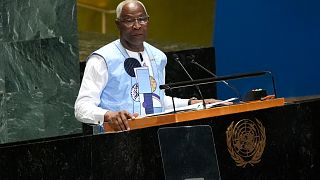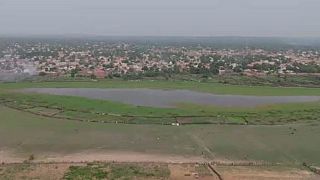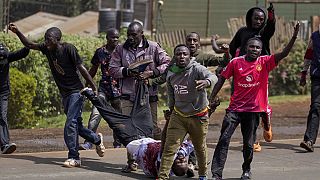Guinea
The trial over a 2009 massacre in Guinea resumed on Monday, following a recent jailbreak that saw armed commandos free ex-dictator Moussa Dadis Camara and three others, leaving nine dead. The incident, which occurred nine days ago, raised concerns about the possible interruption of the trial, which opened in 2022 after more than a decade-long wait for victims.
Three of the accused, including Dadis Camara, were recaptured on the same day as the jailbreak, while Colonel Claude Pivi remains at large. The individuals are facing charges related to a massacre committed at a political rally in 2009 during Dadis Camara's presidency, marking one of the darkest chapters in Guinea's history.
The prison raid on November 4, orchestrated by armed commandos, heightened fears of trial disruption. However, on Monday, the trial resumed after a three-week suspension for unrelated reasons. Dadis Camara and the two other men were present in court, but concerns arose as none of Dadis Camara's lawyers have been authorized to contact him since the jailbreak, constituting a "violation of the rights of the defense," according to one of his lawyers, Pepe Antoine Lamah.
Colonel Claude Pivi's lawyer, Fode Kaba Cherif, requested a trial postponement in his client's absence, a plea opposed by Prosecutor Alghassimou Diallo. The hearing was adjourned until Monday afternoon.
Lawyers for the defendants taken from prison asserted that their clients were forcefully removed and did not escape voluntarily. Dadis Camara and 10 other former officials are on trial for a range of charges, including murders, acts of torture, rapes, and kidnappings committed by security forces on September 28, 2009, and in the following days.
The massacre began in a stadium in the suburbs of the capital, Conakry, where tens of thousands of opposition supporters had gathered for a rally. According to a UN-mandated commission of inquiry, at least 156 people were killed, hundreds were injured, and at least 109 women were raped during the tragic events.











Go to video
US deports eight men to South Sudan after legal battle
01:01
Ecuador recaptures fugitive drug kingpin 'fito' after dramatic raid
00:52
Imprisoned singer R. Kelly alleges "murder plot" against him in prison
Go to video
Ivory Coast: 5 dead in clashes at Bouaké prison
00:54
Mozambique's ex-finance minister sentenced in US in loan scandal
02:23
Guinean government responds to sentencing of MoDeL leader Aliou Bah